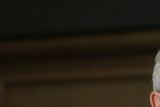Denis O'Brien labels Google and Meta as ‘greedy f**ks’ and says telecoms operators are ‘b****xed’
In a wide-ranging interview, the veteran entrepreneur also said that 5G has been “a disaster” and that bondholders will assume control of Digicel within a month




Denis O’Brien says that European telecom operators are “b****xed” and that the telecoms industry is now “sh**e”.
In an interview with the Telecoms.com podcast, Mr O’Brien also heavily criticised tech giants such as Meta and Google, calling them “greedy f**ks” and saying they deprive third world countries of revenue.
He said that 5G has been “a disaster” as a business case and that Digicel will not be rolling it out.
And he said that he is preparing for bondholders to assume control of Digicel in the next month after a tricky debt-restructuring process, which will leave him seeking new investments as he now has “12 hours a day to fill”.
Mr O’Brien said that the telecoms industry is no longer viable without structural and regulatory change that would force companies such as Meta and Google to share revenue with telecoms operators.
“The telecoms business is b****xed,” he said. “It's a moribund industry, sadly, in terms of growth and margin, cash flow, regulation and OTTs [Over The Top services from Google, Meta, TikTok and others]. There’s a lot of sh**e in the bucket at the moment.”
Read more
He said that regulators, as well as European Commission directions, have been “shocking”.
“Four operators in every country is mental,” he said, of regulatory preferences for multiple operators in each marketplace to provide competition.
“In reality, if you have two mobile operations knocking the sh*t out of each other, that's better than four, under-capexing the market.”
Mr O‘Brien said that big tech firms were profiteering not just from telecoms networks, but from poorer countries.
“The whole of Africa is being defrauded in my mind,” he said. “Facebook's revenues come out of Africa directly from advertisers but the corporation tax goes straight out of there to Ireland. This is the second wave of colonialism.”
Nigeria and a number of other African countries recently introduced legislation to levy value-added tax on digital services from businesses such as Google and Meta.
Mr O’Brien said that Digicel’s recent period of debt restructuring was down to higher interest rates and a weaker Haitian currency.
“It’s very simple,” he said. “We invested $5 billion. We were borrowing money at seven to seven and a half percent. It's now 15pc because of what's happened in Ukraine and interest rates and everything being locked down. Plus we lost $100 million in revenue in Haiti because the local currency declined by 60pc. And Haiti was our biggest market. So I could struggle on borrowing money at 15pc, trying to make a business out of it or do a debt-restructuring deal for equity. I went to my bondholders and said ‘here are the keys of the kingdom, you run the business’. And they said they would like me to be involved with 10pc equity in and 10pc of options. So I've been working with them and they will end up controlling the business in the next month. Life goes on. The main thing from my point of view is that I don't have to work 12 to 14 hours a day anymore. I stepped down as chair to become non-executive. And that kind of suits me at my age to do that. To have a bit of fun.”
During the two-hour interview, Mr O’Brien was not asked about the process of getting a mobile licence in Ireland in the 1990s.
However, he said that the process of getting the company's first major Caribbean licence in Jamaica, after he had sold Esat to British Telecom in 2000, was fraught.
“I'd never been to Jamaica and I just sent a fella down and he had a bank draft and we bought the licence,” he said.
“And then we kind of went into a panic. We were in Dublin on the phone bidding for the licence and we’re drinking rum. We had a guy called Frank O’Carroll at the auction on the phone. And it was going up and up and up and we were reaching the end of the road. But we bought it for $47.5 million.”
Asked about who is to blame for the industry’s current malaise, Mr O’Brien attributed most of the blame to operators themselves.
“It’s 75pc the operators and 25pc the regulators,” he said. “Everybody's been asleep at the wheel. All the CEOs of all the big telcos have been asleep.”
He said that CEOs bonuses should be tied to making progress on getting revenue-share from big tech online platforms which, he said, make up over 70pc of most network traffic.
“They [telecom CEOs] couldn't see the changes as they were happening, and they never tried to influence what would happen. Google, you know, offered the two big US carriers a revenue share and they were told to f*** off by the carriers, which was a massive mistake. And that f***ed up the industry for years.”
Mr O’Brien said that Digicel will only replace Huawei networking equipment if it’s a subsidised process. He said that he refused a request from the former US Secretary of State under Donal Trump, Mike Pompeo, to remove Huawei equipment from Digicel’s network because it would be too expensive.
“He [Pompeo] was saying that we would have to rip out our Huawei equipment and replace it with Western vendors because they didn't want Huawei to be the supplier of 5g to us,” he said.
“I think he kind of mistook that he could actually order us to do something that would be a massive cost to us. You're talking about a billion dollars here. I had to explain to him in the nicest possible way that I'm an Irish business guy who has invested all this money in the Caribbean and the Pacific Islands. I can't just rip out my networks. In the US, all the operators that bought Huawei equipment have had the government pay for them to rip it out. They'll have to do the same in the Caribbean because we can't afford it.”















.jpg)

